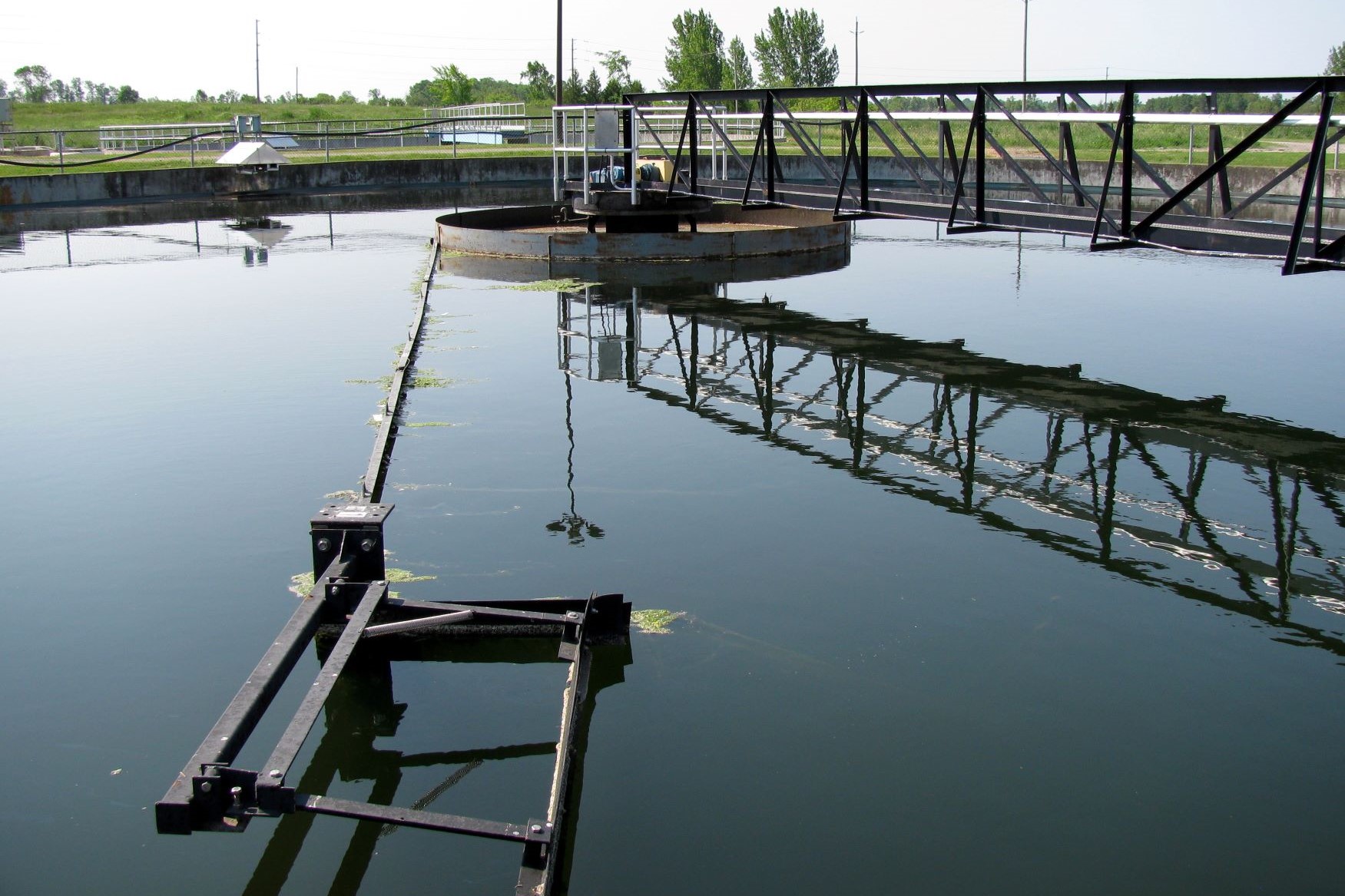Advanced Water Systems Operations and Management (Co-op)
The Advanced Water Systems Operation and Management program will prepare graduates to work in water treatment, water distribution, and wastewater treatment, related work in industry, as well as inspection or enforcement.

Program Information
Start Date
September 02, 2025
Domestic Availability
Accepting Applications
International Availability
Closed
CIP Code
15.0506
Program Code
AWS
Delivery
In Person, Placement
Credential
Ontario College Graduate Certificate
Academic School
Location
Program Contact
Domestic Tuition
$3859.45 per semester*
International Tuition
$10502.34 per semester*
*Domestic tuition amounts shown are from the 2024-2025 academic year and are subject to change.
*International tuition amounts shown are from the 2024-2025 academic year and are subject to change.
Apply Now
Canadian StudentsView Curriculum
January 05, 2026
Domestic Availability
Accepting Applications
International Availability
Closed
CIP Code
15.0506
Program Code
AWS
Delivery
In Person, Placement
Credential
Ontario College Graduate Certificate
Academic School
Location
Program Contact
Domestic Tuition
$3859.45 per semester*
International Tuition
$10502.34 per semester*
*Domestic tuition amounts shown are from the 2024-2025 academic year and are subject to change.
*International tuition amounts shown are from the 2024-2025 academic year and are subject to change.
Apply Now
Canadian StudentsView Curriculum
The operation and management of water and wastewater treatment systems to safeguard against water-borne diseases, and ensure a healthy environment in an efficient and sustainable manner are paramount in both public and private sector industries. The provision of potable water and the effective treatment of the municipal and industrial wastewater streams are growing fields in the environmental sector. The Ontario government has passed into law rigorous training requirements for water and wastewater treatment operators, in response to recommendations made in the Walkerton Commission of Inquiry reports. Under the Safe Water Drinking Act, operators require training and certification to run these systems safely. This one-year Graduate Certificate program in Advanced Water Systems Operations and Management will provide you with:
- The opportunity to do real, hands-on manipulation of equipment and data collection, learning about water systems operation in our labs and wet-work facilities.
- Faculty expertise to guide you in understanding government regulations on the treatment of water and wastewater in this highly regulated and changing industry.
- The knowledge needed to pass the Ministry of Environment Licensing and Certification exams for Water and Wastewater Operators.
- Project management skills, essential to your success in this field.
- Critical thinking and troubleshooting skills required to respond to emergency or non-routine situations as an operator or supervisor in this challenging field.
- Health and Safety knowledge and awareness training to assist graduates in a safe working career and progression into management roles.
- The knowledge and practical expertise to assist and lead organizations and government agencies in the provision of drinking water and the treatment of wastewater.
You will work for up to 16 weeks in a facility or industrial setting, applying your learning under the guidance of a mentor, during this paid, co-op experience.
Please note: students pay tuition and fees for two semesters of study, plus a co-op fee of approximately $558.00 (to cover administrative fees related to the co-op).
Students who start the program in September participate in their co-op from the first Monday in May until the last Friday in August. Students who begin the program in January participate in their co-op from the first Monday in September until the last Friday before Christmas in December.
This program has been designed to be forward-thinking, incorporating industry trends, job requirements and legislation requirements, to prepare graduates for this work. Employment opportunities include work in municipalities with water and wastewater treatment systems, in water-use industries, in inspection or environmental monitoring agencies. Employment in this sector is expected to increase due to upcoming retirements, environmental factors and changes in legislation.
As a graduate, you will be considered an Operator in Training and can use this program as a pathway to the Level 1 Operator. The 16-week co-op may count towards the 12 months of experience required for a Level 1 licence. With successive experience, you can progress into higher classifications of licences and subsequently into municipal management or government inspection roles. Employment opportunities are also available in industrial sectors such as mining and minerals processing, iron and steel, petroleum, power generation, cosmetics, pharmaceuticals, and agriculture.
Northern Ontario offers growing employment opportunities, particularly for those with experience in wastewater treatment in cold climates. International work in wastewater and water treatment, particularly in countries where water and wastewater infrastructure are being developed, are other potential career options.
The management of urban infrastructure in Ontario will face challenges as a result of urban population increases, water quality and quantity, changes in energy supply and climate changes that may lead to extreme weather events. Aging, deteriorating infrastructure, new technologies and new infrastructure design are other factors that water/wastewater facility managers and operators need to be able to anticipate and respond to appropriately.
The Centre for Advancement of Water and Wastewater Technologies (CAWT), located on-campus, is recognized internationally for its applied research specializing in innovative and emerging water and wastewater treatment using low cost, high efficiency, environmentally-sound technologies. The CAWT has received over $15 million in funding for applied research as of 2017. This program works with the CAWT to inform students of the innovative water and wastewater projects undertaken by the CAWT.
There are two, 13-week semesters, followed by the 16-week co-operative education placement. The program concludes with a series of presentations and co-op evaluations at the Graduate Field Summit.
Laboratory and field work are incorporated throughout the program as are field trips to a variety of water treatment and wastewater treatment operations. Normally, course and lab work take place on-site for four days per week while one day per week is devoted to field work, site visits, and applied project work in teams.
To be responsive to industry and technological change, the program is designed in a series of 10 courses (modules). This modular format provides opportunities for those employed in the field to take some of the modules that are of interest for professional development. For example, operators may be interested in increasing their knowledge and skills in areas such as project management and industrial operations.
Upon successful completion of this program, graduates will be able to:
- Utilize a wide variety of instrumentation and standardized protocols for the collection and analysis of samples and data required in the operation of water and wastewater facilities;
- Collaborate with individuals and groups in testing and troubleshooting equipment at various water treatment and distribution facilities and at wastewater collection and treatment facilities;
- Evaluate system design and operations based on current legislation, regulations and standards affecting water and wastewater treatment plants, scope and authority of facility permits and owner/operator responsibilities;
- Develop risk management strategies including emergency response and disaster preparedness for water and wastewater systems;
- Test and monitor microbiological parameters in water and wastewater applications and propose remediation strategies to reduce/ eliminate contaminants;
- Assess current, innovative and emerging technologies in such areas as water conservation, alternative supply (e.g. rainwater) and zero-discharge for the provision of potable water and wastewater treatment and their possible applications within the industry;
- Assess the sustainability of current infrastructure in water operations, considering maintenance plans, addressing future needs, energy utilization improvements, population growth and financing of water services.
- Manage projects in the maintenance, renewal, and replacement of utility infrastructure using project planning and project management tools.
- Utilize a wide variety of instrumentation and standardized protocols for the collection and analysis of samples and data required in the operation of water and wastewater facilities.
- Collaborate with individuals, groups in testing and troubleshooting equipment at various water treatment and distribution facilities and at wastewater collection and treatment facilities.
- Evaluate system design and operations based on current legislation, regulations and standards affecting water and wastewater treatment plants, scope and authority of certificates of approval and owner, operator responsibilities.
- Develop risk management strategies including emergency response and disaster preparedness for water and wastewater systems.
- Test and monitor microbiological parameters in water and wastewater applications and propose remediation strategies to reduce, eliminate contaminants.
- Assess current, innovative and emerging technologies in such areas as water conservation, alternative supply (e.g. rainwater) and zero-discharge for the provision of potable water and wastewater treatment and their possible applications within the industry.
- Assess current infrastructures in water operations for ongoing maintenance plans to address future needs and changes in such areas as disaster preparedness, population growth and climate change.
- Manage projects in the maintenance, renewal, and replacement of utility infrastructure using project planning and project management tools.
Students applying to Advanced Water Systems Operations and Management (Co-op) must meet the following requirements:
- Undergraduate degree or Ontario College diploma in a related field or equivalent
Other program requirements:
- An Ontario G Class Driver’s License
Transfer Agreements
You may be able to use credits obtained at Fleming College to continue your postsecondary education in pursuit of a degree. The articulation and credit transfer agreements with our partner institutions are summarized here.
Master of Integrated Water Management
Requirement
- Minimum B cumulative program average. Bachelor's degree in a relevant field. OR
- Graduate Certificate plus a minimum of one year of practical experience in a related field.
- The program is offered online.
Transfer Credit
- 20 credit points out of a 120-credit point degree.
- Review the articulation agreement for further details.
To apply please see the Griffith University's admissions website.
For more information
Visit the Griffith University website for further articulation and program information.
See the official articulation agreement.
